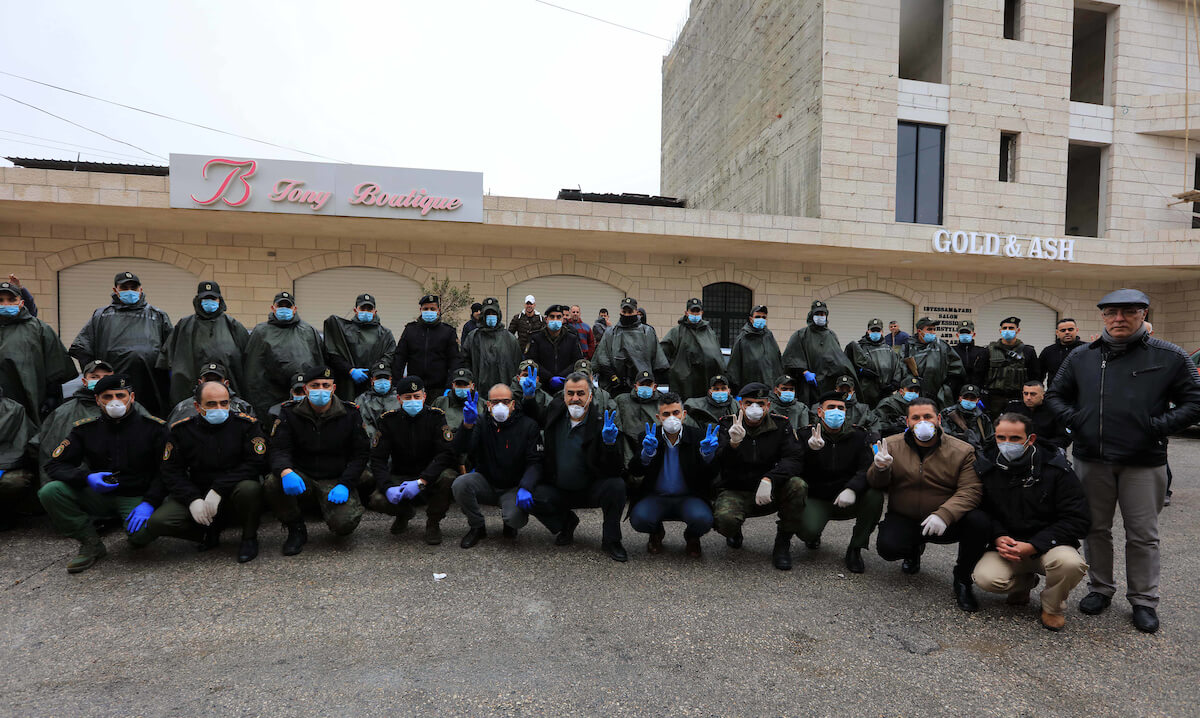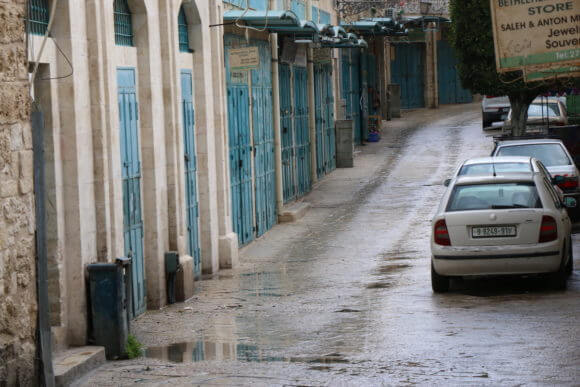This is the first edition of our special coverage newsletter on the COVID-19 crisis in Palestine featuring dispatches directly from our Palestine correspondent Yumna Patel on the ground in Bethlehem. This new email will be published Tuesdays and Fridays.
[mailpoet_form id=”5″]
It’s hard to resist the calls of Palestinian springtime, beckoning through my window with rays of sunshine, a cool breeze, and birds chirping.
The tail end of March and beginning of April is often regarded as the most beautiful season in Palestine.
Almond trees are blossoming their pale pink flowers, and the dark green leaves of the fig trees begin to peak through after a particularly cold winter.
It’s a time when most Palestinians in Bethlehem would join together with family and friends and head to the hilltops of Beit Jala, the winding trails of the al-Makhrour valley and the ancient terraces of Battir.
But this year, residents of the little town of Bethlehem mourn the passing of spring in quarantine, as the city-wide lockdown enters into its fourth week.
What little taste of spring they can find, will have to be savored from inside their homes, on a balcony, or in a family garden if they’re lucky.
The number of coronavirus cases in Palestine has reached 60 — 58 in the occupied West Bank, and two in the Gaza Strip.
The vast majority of the cases, around 40, remain in Bethlehem, the epicenter of Palestine’s outbreak.
We received some much needed good news last week, when the Ministry of Health announced 17 of the original COVID-19 patients from Bethlehem were in recovery.
We were later told that one of the 17 apparently relapsed, and was tested positive for the virus after being discharged. A small bump in the road. The important thing was, that we seemed to have successfully “flattened the curve.”

It has been surprising to see a society so inherently characterized by community ties and social interactions, practice the concept of social distancing so well.
In Bethlehem, for the most part, people are following the government’s orders to stay at home, leaving only for essential reasons like going to the doctor or buying groceries.
Businesses have remained closed, the police have increased their roadblocks across the city, and the 7pm-7am curfew is being enforced and followed, as far as we know.
While the once crowded mosques and churches are empty, the Muslim call to prayer still rings through the city — only now with a tiny adjustment. Rather than calling people to gather in the mosque for prayer, worshipers are instructed to stay in their homes.
Every few days, workers from the civil defense or local councils come to fumigate different neighborhoods throughout the city, and the ministry of health provides the people with consistent updates on the spread of the virus.
There is a hope in Bethlehem that the strict containment measures that were put in place when the first test came back positive three weeks ago will mean that the city will be free of the virus before the rest of the country.
That hope, however, doesn’t deter from the real fear surrounding the fact that the virus is spreading to other places across the West Bank — Hebron, Ramallah, Nablus, and Tulkarem so far.
Will the authorities in those other governorates, some of which are double and triple the size of Bethlehem, be able to enforce the same containment measures that the authorities in Bethlehem have done?
Palestinian citizens who were living and studying abroad have slowly been trickling back into the country, raising fears that the virus could be spread that way.
On Tuesday, the government announced that a Palestinian woman who recently traveled back from the US was tested positive for the virus and put in quarantine in Ramallah.
Seven Palestinian students who were studying in Italy were flown into Israel, in coordination between the Palestinian Authority and the Israeli government, and were reportedly immediatley put into quarantine and tested for the virus.
And while the overall perception of the PA during this time is overwhelmingly positive, the efficiency of their machine has been called into question recently, after a disturbing video surfaced on social media showing a Palestinian laborer being dumped by Israeli forces on the other side of a West Bank checkpoint, after the man began displaying symptoms of the virus.
The PA had promised laborers and their families that they would be given proper accommodations by their employers for the month or two that they would be forced to stay inside Israel, if they chose to go to work last week.
They also promised the larger citizenry, that the return of all laborers would be made in close coordination with the Israeli government, and that everyone would immediately be placed into quarantine upon return.
But if Israel keeps dumping workers across the border anytime they are sick, with no prior warning to PA officials, how could the government possibly get a handle on the situation?
For many Palestinians, the government’s decision to allow laborers to go to Israel, where the number of cases has reached over 1,000, was a big mistake, and could prove to be a thorn in the PA’s side in the coming weeks — both in terms of containment efforts, and maintaining public order.
At the end of the day, Palestinians are all too aware of the fact that their healthcare systems cannot withstand even the smallest outbreak, especially in Gaza where there are only 62 ventilators in the entire territory, which is home to more than 2 million people.
As we head into the fourth week of quarantine, people are holding their breath to see if, somehow, they can manage to circumvent the disaster that is sweeping across the rest of the world.


